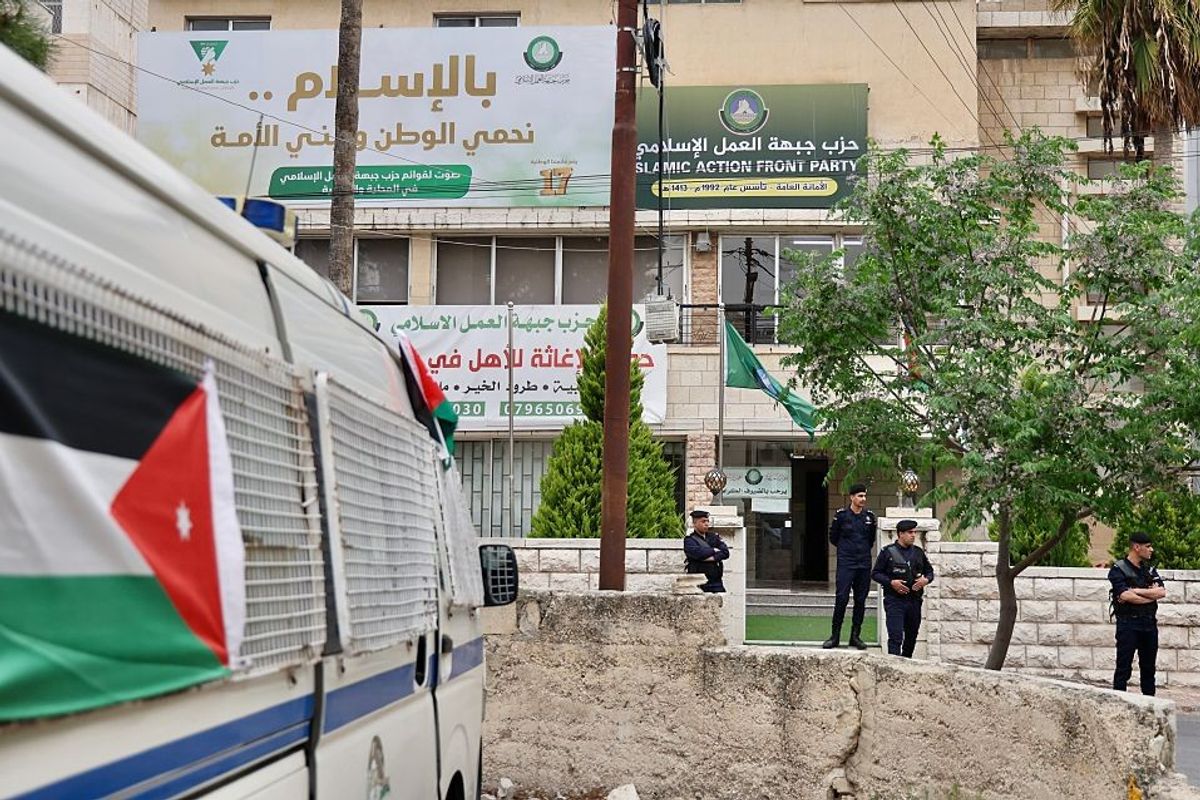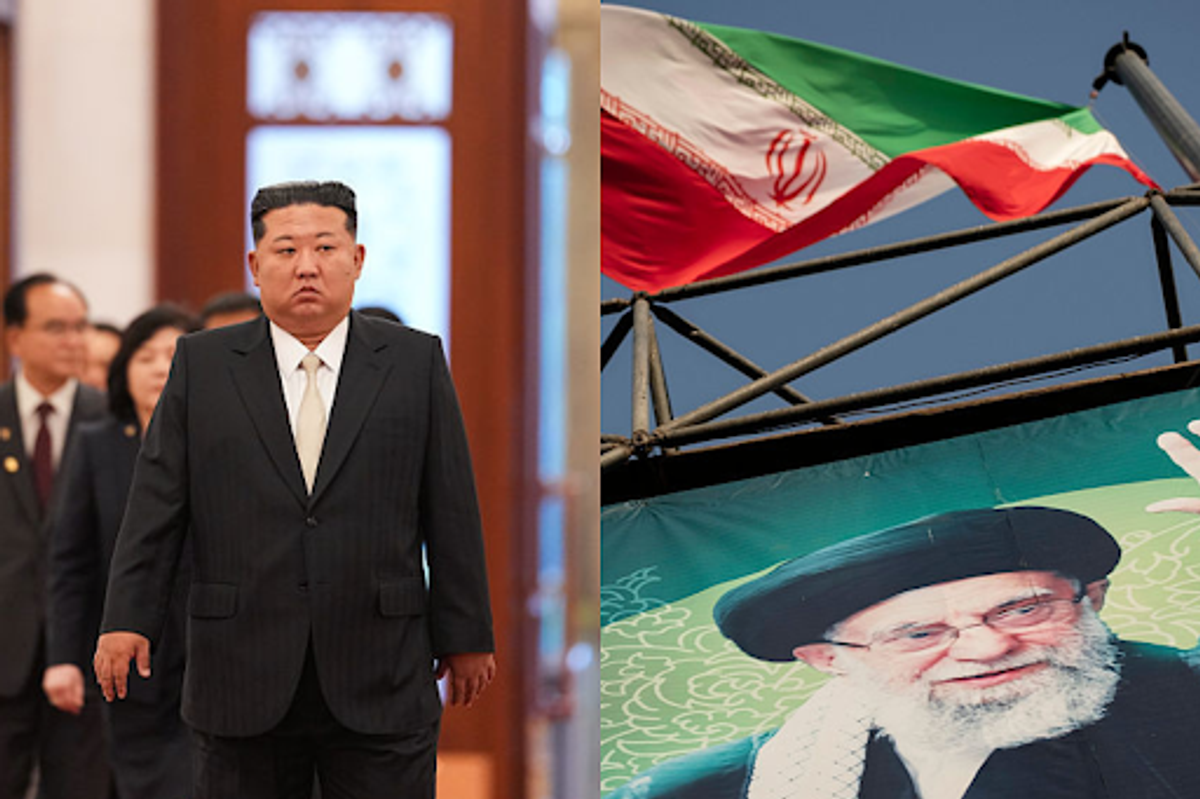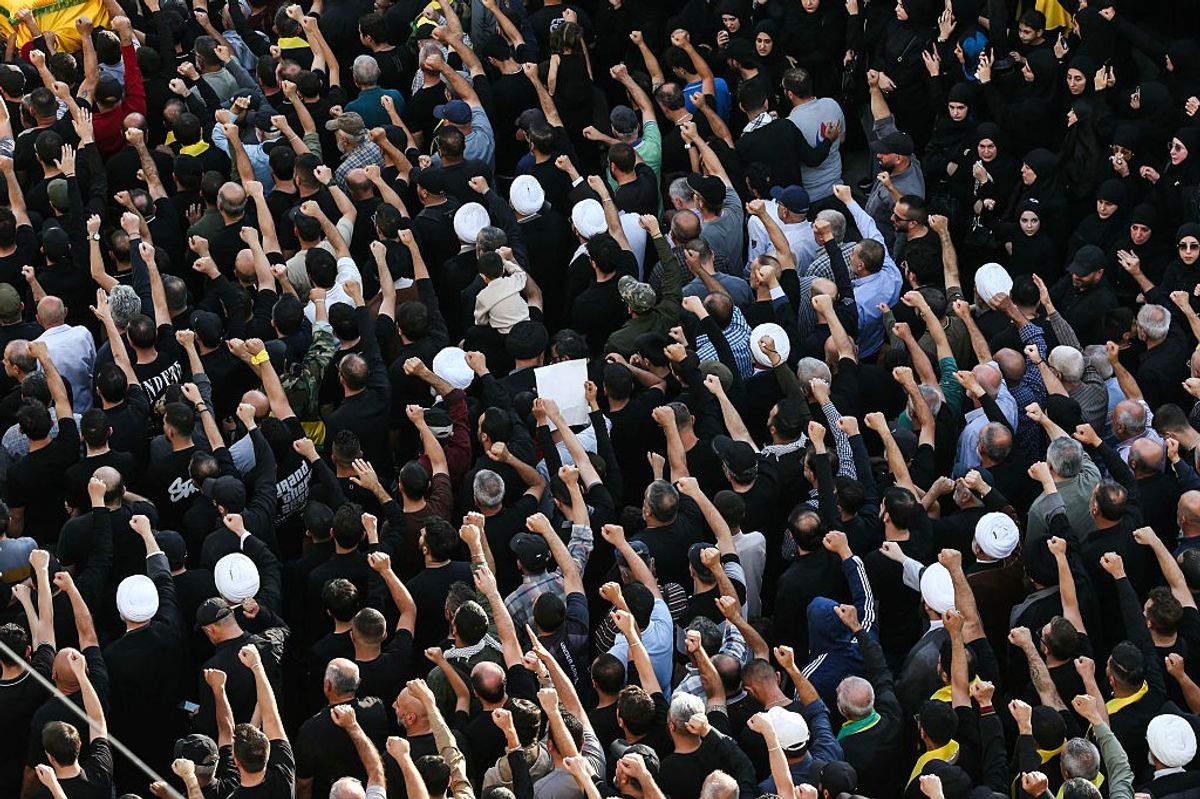DEEP DIVE - For months, a question has loomed over the Israeli wars against Hamas and Hezbollah: at what point would Iran, the patron of those militant organizations, strike back? Israel has battered the leadership and military capacity of both groups, and with each Israeli airstrike and each high-profile killing, the questions followed: How long could Iran go without responding? And how fierce would the response be when it came?
The world got an answer Tuesday, in an Iranian missile barrage against Israel that marked the second major Mideast escalation in less than 24 hours; late Monday, Israel sent troops into southern Lebanon in its campaign against Hezbollah.
Iran’s Revolutionary Guards Corps said the missile attack was a response to Israel’s recent assassinations of Hamas and Hezbollah leaders – specifically, “the martyrdom of (Hamas leader) Ismail Haniyeh…the martyrdom of Hezbollah leader Hassan Nasrallah and (of) Guards Commander Abbas Nilforoushan,” Iranian state TV reported. An explosive device – widely attributed to Israel – killed Haniyeh in a Tehran guest house in late July; and an Israeli airstrike on the Hezbollah headquarters in Beirut last week killed Nasrallah and Nilforoushan.
But if Israel – and the world – got an answer from Iran Tuesday, the episode also left major questions for Israel, Iran and the U.S.: would this mark the end of the latest strikes and counterstrikes? Or was another escalation coming, one that would send the region into a long-feared wider war?
“We're going to have to see if the Israelis are going to respond now by targeting targets in Iran,” former CIA Senior Executive Glenn Corn told The Cipher Brief Tuesday afternoon. “I have a feeling that the Israelis will respond.”
Shortly thereafter, Israel gave its own answer, suggesting Corn may be right.
“Iran carried out a serious act tonight and is pushing the Middle East to an escalation,” Israeli military spokesman Daniel Hagari said. “We will act at the place and time of our choosing, in accordance with the guidance of the political echelon. Tonight’s event will have consequences.”
Prime Minister Benjamin Netanyahu issued his own warning: “Iran made a big mistake tonight — and it will pay for it.”
Damage assessment
In many ways, Tuesday’s Iranian response mirrored its only other major attack against Israel — a heavy but highly telegraphed barrage of missile fire in April that was almost entirely repelled by Israeli air defenses, with assists from the U.S. and Jordan.
Israel’s military said that Iran had launched 180 ballistic missiles Tuesday, setting off air raid sirens and sending Israelis to underground shelters in many parts of the country. But if it was a heavy attack, it was also brief and well defended; multiple explosions were heard in Tel Aviv, but those were apparently the result of successful interceptions of the missiles. The only casualty of the Iranian strikes appeared to have been one Palestinian death in the West Bank.
U.S. national security advisor Jake Sullivan told reporters that President Biden had directed the U.S. military to down several of the incoming missiles. And Pentagon spokesperson Maj. Gen. Pat Ryder said that two U.S. guided missile destroyers in the region had fired roughly a dozen interceptors during the attack. Sullivan also made a point of saying that the Iranian attack – while a “significant escalation” – had been “defeated and ineffective.”
The intent and the message of the Iranian strikes may also have been similar to the April attacks: a military response meant to show resolve to domestic audiences in Iran as well as to the supporters of Hezbollah and Hamas; but at the same time, a strike that was limited, presumably to avoid inviting a massive Israeli response — and perhaps an American one as well.
It was all over quickly; about an hour after Israeli civilians were told to take cover, authorities said the attack had subsided and that citizens could leave the bomb shelters. The sirens over Israel went quiet, and the Iranians signaled that this episode had ended. And just as it did after its April attack, Iran warned late Tuesday against an Israeli response. Iran’s mission to the United Nations issued a statement saying that if Israel were to retaliate or carry out “further acts of malevolence, a subsequent and crushing response will ensue.”
What comes next - and why Israel may not "take the win"
While the latest Iranian strikes and Israeli defenses looked like what happened in April, the Israeli statements suggest that what happens next may be very different. Much has changed since then; and many experts believe that this time, Israel won’t accept the “it’s over” message from Tehran.
Last April, Israel agreed to “take the win,” as President Joe Biden urged Netanyahu then – meaning, be happy that it’s over and that the air defense systems worked. Israel’s response in April — to a barrage that was heavier than Tuesday’s – was limited to airstrikes against an Iranian air defense site protecting the Natanz nuclear facility in Isfahan.
Now, many believe that Israel's recent military successes – against Hezbollah especially – have left Prime Minister Benjamin Netanyahu and his war cabinet in no mood for restraint.
“I don't know if anybody can say ‘take the win’ right now because the situation is too volatile,” Corn said.
“We should not underestimate the means or vigor with which Israel will respond to the Iranian barrage,” said Gary Grappo, a former U.S. Ambassador to Oman and long-serving diplomat in the Middle East. “There will not be another ‘symbolic’ Israeli response. This time we should expect Israel to launch a retaliatory strike that causes Iran real damage and harm.”
Norman Roule, a CIA veteran who served as the National Intelligence Manager for Iran at the ODNI, said that the Netanyahu government – along with Israel’s military and security forces – “have worked hard to show that Israel will no longer allow itself to be targeted by Iran or its proxies. Israel likely already has targeting packages of key Iranian facilities it will strike. The selection of the targets will be the subject of deliberation – which may already have taken place – by Israel’s security cabinet.”
Roule also noted that an attack on Iran would leave Israel fighting on three fronts – with operations in Gaza and Lebanon continuing.
A U.S. reponse?
The U.S. may not be in a mood for restraint either. Only 24 hours before the Iranian strikes, the Pentagon sent its own clear message to Tehran: Press Secretary Maj. Gen. Pat Ryder shared details of a Monday call between Secretary of Defense Lloyd Austin and Israeli Defense Minister Yoav Gallant, including this statement: “The Secretary and Minister Gallant discussed the serious consequences for Iran in the event Iran chooses to launch a direct military attack against Israel.” Less than 24 hours later, the Iranian missiles were in the air.
All this raises what Grappo called the “most important question” of the moment.
“There was never any doubt that the US would support Israel in defending itself from the missiles,” Grappo said. “Now, will it join Israel in an offensive strike against Iran? That is something we have not done overtly but is now a real possibility. It would send a very sobering and equation-altering message to the Iranians. And if we do, where and how will we strike?”
Corn said that the Pentagon statement was in effect an American red line that might compel a response.
“My first thought when I saw that comment was, Now we've kind of painted ourselves into a corner because we put a red line down, and the Iranians crossed the red line. So what do we do now?”
Iran’s dilemma
As The Cipher Brief has reported, the wars in Gaza and Lebanon have put Iran in a difficult geopolitical box. On the one hand, by holding their fire after nearly every Israeli strike, they have looked nothing like the powerful patron and backer of Hezbollah, Hamas and the other groups. On the other hand, any retaliatory strike by Iran that does serious damage or results in heavy casualties would almost certainly bring a major Israeli and American attack against Iran itself.
“Iran almost had no choice if it wasn’t to lose enormous stature in the eyes of its 'Axis of Resistance' proxies,” Grappo told The Cipher Brief. “It’s certainly something Hezbollah wanted almost immediately after the Israeli strike that killed its leader, Nasrallah. Iran cannot afford to lose its status as the ultimate patron to these groups. So, there was a lot politically on the line for the Iranians if they are to maintain this grouping of proxies.”
All that said, Grappo noted – as others have as well – that “it is still very much not in the interest of Iran to see this reach the point of an all-out war between the two. It simply cannot afford it.”
But with Israel vowing a retaliation of its own, that point may have been reached. Multiple reports – even prior to the Tuesday strikes – said Khamenei had been moved to a secure location, in the wake of Nasrallah’s assassination.
As the one-year anniversary of the Hamas massacre in Israel approaches, that “wider war” that so many have feared may have arrived.
Read more expert-driven national security insights, perspective and analysis in The Cipher Brief.
It’s not just for the President anymore. Cipher Brief Subscriber+Members have access to their own Open Source Daily Brief, keeping you up to date on global events impacting national security. It pays to be a Subscriber+Member.













